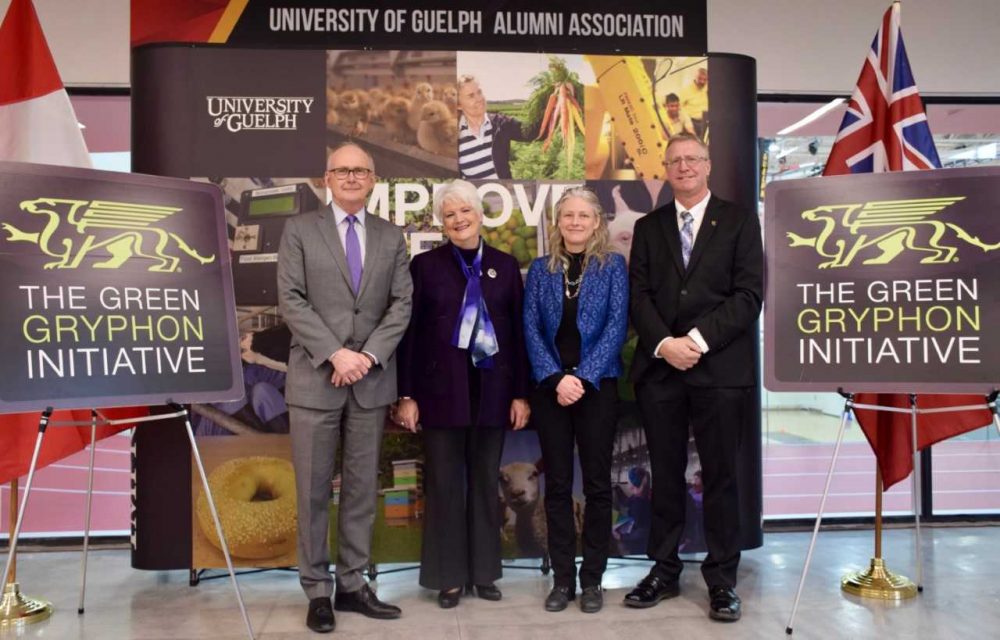
The University of Guelph has received $25 million from the Ontario government to support its ongoing energy and water conservation efforts.
The money comes from the province’s greenhouse gas campus retrofits program within its larger climate change action plan.
“U of G is proud to be a leader in conservation and in creating sustainable learning environments,” said Don O’Leary, vice president (finance, administration and risk). “We are committed to a future as an energy-reliable campus, and this new funding will allow us to expand and enhance initiatives aimed at placing fewer demands on the planet.”
On campus today to make the announcement, Guelph MPP Liz Sandals said, “I would like to congratulate the University of Guelph for the many innovative projects and programs that it has initiated to conserve water and decrease energy consumption.”
“I am very pleased that the University is receiving this significant support to further reduce its carbon footprint from Ontario’s cap and trade program.”
The University will use the funding to upgrade and expand its heat recovery system, install real-time energy monitoring meters and a new electric boiler, and pursue other projects to reduce greenhouse gas emissions.
“Our goal is preserving natural resources, cutting down on greenhouse gas emissions and energy costs, and helping protect the environment,” O’Leary said.
“Increasing the efficiency of our heating system and introducing electric-based heating is another step toward a long-term strategy of reducing reliance on carbon-based fuel for heating.”

The provincial money includes $9.5 million in grants and $16.8 million in interest-free loans. Buildings to be upgraded will include the W.F. Mitchell Athletics Centre and Rozanski Hall, the largest classroom facility on campus.
The retrofit projects will reduce CO2 emissions by more than 3,200 tonnes per year, the combined equivalent of removing nearly 700 cars from the road, powering and heating about 350 homes, and the benefit of planting more than 83,000 trees.
Students will have access to course-based and hands-on learning opportunities involving the heat recovery system. Students – largely in engineering, environmental sciences, business and environmental governance programs — work in U of G’s Department of Physical Resources each term, and this project will provide more learning opportunities. During today’s event, engineering professor Andrea Bradford discussed how conservation projects provide experiential learning for students.
O’Leary said U of G has found innovative ways to use and manage energy and water for many years. The University has invested millions of dollars in energy and water conservation efforts as part of its long-term plan to be a carbon-neutral campus, he said.
This includes the Green Gryphon initiative, a $26.2-million, campus-wide energy retrofit that led to a new thermal energy storage system. Overall, the project has reduced the University’s electrical consumption by eight per cent and electrical demand by 14 per cent annually.
U of G has also invested more than $10 million in other retrofit programs, including energy-efficient lights and windows, heating systems and water conservation. Campus-wide water use has decreased by nearly eight per cent and total energy consumption by 11 per cent, saving the University some $2.2 million a year.
In 2016, U of G’s conservation efforts were rewarded with a $5.8-million energy-saving initiative from the province, part of a funding rewards program overseen by the Ministry of Energy.